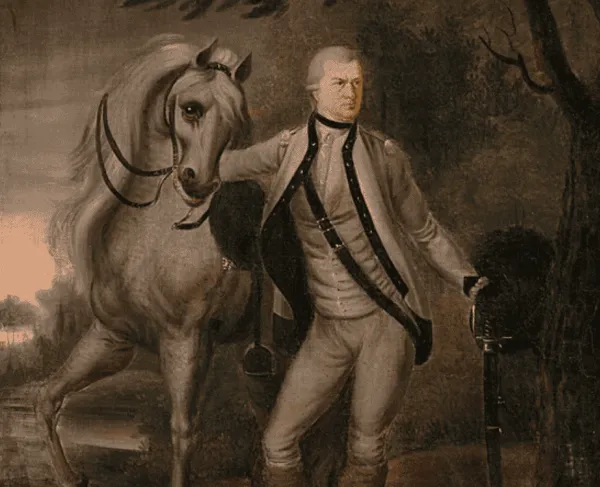John Montagu

John Montagu was born a child of nobility. After his father, a viscount, passed way when he was four years old his mother, Elizabeth Popham Montagu, sent him away to Eton to attend school. After his grandfather died, Montagu was named the fourth Earl of Sandwich at only ten years old. Montagu left college early and embarked on travels around Europe and North Africa.
Perhaps he is now most known for providing the namesake to a meal he preferred on busy days in the office or, allegedly, at the gambling table--the sandwich. But in his time, Montagu’s tumultuous romantic relationships cultivated his unfavorable public perception. Montagu’s first marriage ended after his wife, Dorothy Fane, was designated as “insane” and “became a ward of the court.” Their son eventually inherited the title fifth Earl of Sandwich. Montagu’s mistress, Martha Ray, with whom he shared a nineteen-year-long committed relationship and had at least five children, was shot and killed by another pursuer.
Montagu, as one of the senior members of Lord North’s cabinet, became the first lord of the Admiralty in January of 1771— he had been in this position once before but was dismissed in the 1750s by King George II due to conflicts between dukes. Montagu willingly demoted himself to assume the role of first lord of the Admiralty once again.
In Montagu’s absence, ships and docks had dilapidated in his absence— an untimely predicament since the British needed to attend to the Revolutionary War. Montagu reignited his efforts to improve the conditions during his second tenure in his 1771 tenure, in which he ensured that the dockyards were looked after and worked together with the Navy Board and the Admiralty in regard to “daily administration” and ensure smoother bureaucratic processes. In December 1773, Montagu happened to be in Boston, Massachusetts during the Boston Tea Party but made no effort to stop the destruction; he watched the proceedings from a window in a house overlooking Griffin's Wharf, and the called to the returning Sons of Liberty that they would have to "pay the fiddler yet" for their actions. Throughout 1775 and 1776, Montagu wanted to enhance the navy by increasing its size, but Lord North continued to roll back the British navy because he believed that it was unnecessary to dominate the colonial uprising. After French formally joined the Revolutionary War in 1778, Montagu was able to secure “the permission he had sought in 1776 to fully mobilize the navy.” Montagu worked efficiently and effectively, but this was relatively unsuccessful and this he was criticized for “negligence and corruption.” Montagu advocated for his difficult position in 1779, stating that by the time he was finally able to augment the navy again, it was “in a most deplorable state, the ships decaying and unfit for service, the storehouses empty, and a general despondency running through the whole naval department.” Because of the workforce weakness and inability to repair ships, Montagu was heavily criticized.
Montagu’s beliefs about the British navy did not coincide with other British governmental figures. Montagu believed in the power of maritime affairs and colonialism as assets to British power. Montagu also followed the proven framework of centralizing the navy in Europe and not in the colonies; with this belief, Montagu’s position conflict with that of King George III, who argued for “sending out larger fleets to the Americas and leaving a smaller force in the Channel.” Montagu was more concerned with Spain and France than he was with the American Revolution.
Angry Britons expressed their discontent for Montagu in sometimes violent, physical ways. He was perceived as ineffectual, overly ambitious, and corrupt. Their reasoning was supported by actions like Montagu’s desire to suspend British involvement in the colonies after Britain and France began warring in 1778. Montagu’s preestablished philosophy of protecting Britain in Europe first made it seem like he “sacrificed America.” However, Montagu’s situation was not seen with an entirely fair critique. The British navy’s size was insufficient to successfully preserve every British interest, which included America, “Britain, Ireland, Jersey, India, Minorca, Gibraltar, Bermuda, West Africa, Jamaica, St. Kitts, Barbados, Antigua, Tobago, Montserrat, Nevis, St. Lucia, Nova Scotia, Quebec, and Montreal.”
After an extensive career in British politics, Montagu retired in 1782 and reignited his impressive musicality by becoming active in London’s opera scene, most notable by organizing events for the composer Handel. In retirement, he had another child with Nelly Gordon. Montagu passed away on April 30, 1792, in London.
Further Reading:
“‘Jemmy Twitcher:’ The Earl of Sandwich” By: Andrew Jackson O'Shaughnessy
“John Montagu, Fourth Earl Of Sandwich” By: Encyclopedia.com





